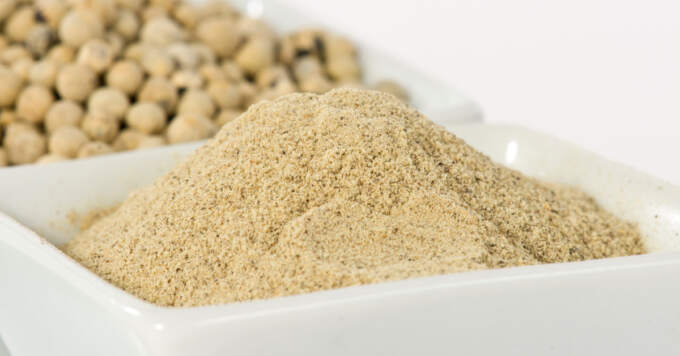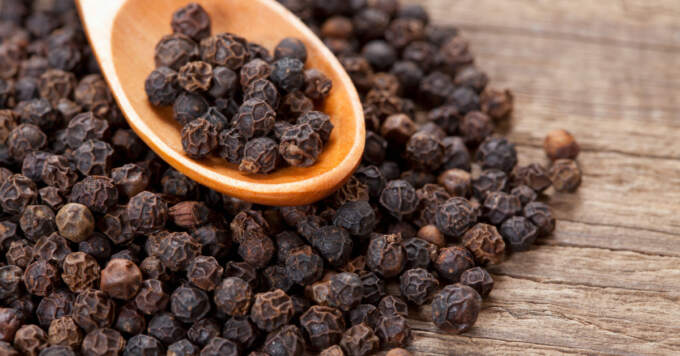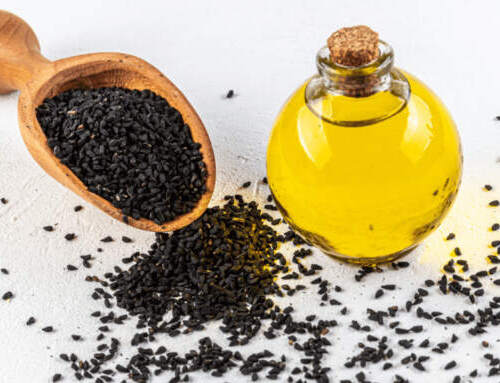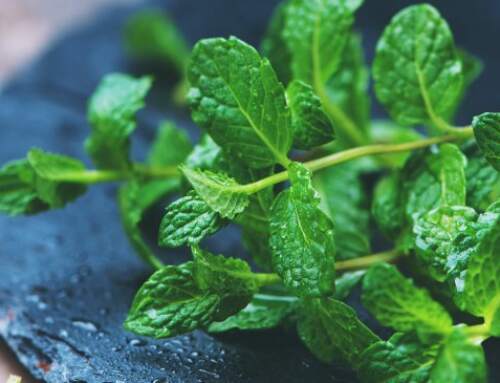Ah, pepper! Dubbed the “king of spices,” this fiery little condiment reigns supreme in the culinary world. From the bustling kitchens of New York to the quaint cafes of Paris, and even in the homely kitchens nestled in the heart of America, pepper is a staple. It’s not just a spice; it’s a global sensation. As one of the most commonly used spices, it has seasoned our dishes, spiced up our conversations, and even played a pivotal role in history, leading explorers to chart new territories. But did you know that not all peppers are created equal? As we embark on this flavorful journey, we’ll delve deep into the world of white and black peppercorns, unraveling their mysteries, and discovering what makes each one unique. So, grab your pepper mill, and let’s get cracking!

Historical Background
Pepper, with its bold flavor and pungent aroma, has long been a prized commodity in the annals of trade and commerce. Especially the black peppercorns, which have been so highly valued that they earned the moniker “black gold.” This wasn’t merely a term of endearment; it was a reflection of the spice’s weight in gold, both metaphorically and, at times, literally.
Originating from the lush terrains of Southeast Asia, these tiny pepper berries were more than just a culinary delight. They became a symbol of wealth, power, and influence. Traders from distant lands, braving treacherous seas and hostile territories, sought after these precious black peppercorn berries, making them one of the most popular choices in ancient markets.
The unique flavor profile of black pepper made it a staple spice in various cuisines, from the savory dishes of Chinese cuisine to the rich and creamy sauces of Western culinary traditions. Its noticeable difference from other spices and its distinct tastes made it a sought-after commodity, often used as a form of currency or as a luxury item gifted to royalty.
Moreover, the aesthetic appeal of black pepper, with its outer layer of the seed glistening like tiny black gems, further solidified its place as a symbol of opulence. It wasn’t just about the flavor of pepper; it was about the status, the visual appeal, and the very essence of luxury that it represented.
In essence, the history of black peppercorns is not just a tale of a spice but a chronicle of human desire, ambition, and the timeless pursuit of the finer things in life.
What are White and Black Pepper?
At the heart of many a dish, adding that touch of spicy heat or earthy flavor, lie the renowned spices: white and black pepper. But what exactly are these two variants, and how do they differ from each other?
Black pepper, often seen as the bold counterpart in this duo, is derived from the unripe berries of the Piper nigrum plant. These peppercorns, when picked, are sun-dried until they shrivel and take on their characteristic dark hue. The outer skin of the berry, which becomes wrinkled in the drying process, encapsulates the inner seed, giving black pepper its unique and pungent flavor.
White pepper, on the other hand, has a more subtle and nuanced taste. It’s derived from the same Piper nigrum plant but undergoes a different process. The berries are allowed to ripen to full ripeness, turning them red. Post-harvest, they undergo a soaking process to remove the outer skin, revealing the light-colored inner seed. These seeds are then dried, resulting in whole white peppercorns that are often preferred in light-colored dishes and creamy sauces for both their flavor and aesthetic purposes.
Interestingly, while black pepper is a popular choice in many American kitchens and is often referred to as the “king of spices,” white pepper holds a special place in many Asian cuisines, especially in Southeast Asia. Its different flavor profile, devoid of the outer layer of the berry, offers a different type of spicy flavor, making it a favorite in dishes like Swedish meatballs and certain sour soups.
While both black and white pepper hail from the same plant, their differences in processing and the presence (or absence) of the outer berry layer lead to distinct flavors and culinary applications. Whether you’re reaching for the pepper mill to grind some fresh peppercorns or using pre-ground pepper, understanding these primary differences can elevate your cooking and appreciation of these most popular spices.

Nutritional Profile
Pepper, whether it’s the fiery black or the milder white, is not just a flavor enhancer. Beneath their unique characteristics and flavor differences lie a treasure trove of nutrients that have made them a great addition to meals, not just for taste but for health too.
Both white and black pepper are rich in essential minerals and vitamins. They contain a small amount of protein, dietary fiber, and a range of vitamins such as Vitamin K, Vitamin A, and several B-complex vitamins. Minerals like manganese, iron, potassium, and calcium are also present in these peppercorns. One of the standout compounds in both types of pepper is piperine. This compound not only gives pepper its spicy heat but also offers several health benefits, including potential weight loss advantages and enhanced nutrient absorption.
However, when we take a closer look at the nutritional nuances between the two, there are some noticeable differences. Black pepper, with its outer layer of the berry intact, tends to have a slightly higher content of certain nutrients, especially antioxidants. This is because the outer skin contains a good amount of beneficial compounds that get lost in the case of white pepper, where the skin is removed.
Furthermore, black pepper’s pungent flavor, attributed to its higher piperine content, also suggests a slightly higher concentration of this beneficial compound compared to its white counterpart. On the other hand, white pepper, due to its soaking process, might have a marginally reduced nutrient content in certain areas, but it still remains a valuable source of many essential nutrients.
In the grand scheme of things, while there are differences in their nutritional profiles, both peppers offer a plethora of benefits. Whether you’re using them in large quantities or smaller quantities for visual appeal or unique flavor, incorporating them into your diet can be a good idea for both taste and health.
Benefits of Pepper
Black pepper and white pepper, despite their differences, share several health benefits due to their origin from the same plant, Piper nigrum. Here are the shared health benefits of both white and black pepper:
Promotes Digestion: Both types stimulate the production of hydrochloric acid in the stomach, aiding in the efficient digestion of food and preventing conditions like indigestion.
Rich in Antioxidants: Both light and dark pepper are packed with antioxidants that combat free radicals in the body, reducing oxidative stress and preventing cellular damage.
Anti-inflammatory Properties: The compounds in both peppers have anti-inflammatory effects, which can help reduce inflammation in the body and provide relief from conditions like arthritis. [Here are 7 more foods that help inflammation]
Enhances Nutrient Absorption: Both types of pepper can increase the bioavailability of nutrients in other foods. For instance, they enhance the absorption of curcumin, a beneficial compound found in turmeric.
Antimicrobial Properties: Both black and white pepper have properties that combat harmful microbes, potentially reducing the risk of infections.
Boosts Metabolism: The active compounds in both peppers can stimulate the metabolic rate, leading to the burning of more calories and aiding in weight management.
Supports Brain Health: Compounds in both peppers, especially piperine, have been linked to improved brain function and mood enhancement.
Dental Health: Both types of pepper have been traditionally used to alleviate toothaches and combat oral bacteria, promoting better dental health.
Detoxifies the Body: Both black and white pepper promote sweating and urination, helping in the removal of toxins from the body.
Anti-cancer Properties: Some studies suggest that compounds present in both types of pepper can inhibit the growth of cancer cells.
While both white and black pepper offer these shared health benefits, the intensity or concentration of certain compounds might vary between the two, leading to subtle differences in their effects. However, incorporating either into a balanced diet can contribute to overall well-being.

difference between white Vs. Black Pepper
White pepper and black pepper, while originating from the same plant, have distinct processing methods that lead to differences in flavor, appearance, and health benefits. Here’s a breakdown of the differentiating benefits between the two:
White Pepper:
Milder on the Stomach: White pepper, due to its more mild flavor and the removal of the outer skin, can be gentler on the digestive system. This makes it a suitable choice for those with sensitive stomachs.
Aids in Mucus Flow: White pepper can help stimulate mucus flow, which is especially beneficial during the common cold or respiratory infections, aiding in clearing nasal passages.
Decreases Blood Pressure: Some studies suggest that white pepper can help in reducing blood pressure.
Helps Treat Diarrhea: White pepper has compounds that can help alleviate symptoms of diarrhea.
Beneficial for Skin Pigmentation: White pepper can stimulate melanocytes to produce pigment, which can be beneficial in treating vitiligo, a condition where skin patches lose their pigment.
Black Pepper:
Enhanced Brain Health: Black pepper, with its high piperine content, has been linked to improved brain function and reduced symptoms of depression.
Improved Skin Health: The outer skin of black peppercorns contains antioxidants that can help improve skin health by reducing acne and other skin-related issues.
Detoxification: Black pepper promotes sweating and urination, which can help in detoxifying the body and clearing out toxins.
Natural Pain Reliever: Black pepper has analgesic properties that can help in relieving pain.
Boosts Metabolism: The capsaicin content in black pepper can boost metabolism, aiding in calorie burning and weight loss.
Anti-cancer Properties: Some compounds in black pepper have been studied for their potential anti-cancer properties, especially related to prostate and ovarian cancers.
While both black and white pepper offer numerous health benefits, their unique processing methods and the presence (or absence) of the outer berry layer lead to these distinct health advantages. It’s essential to choose the type of pepper based on individual preferences, culinary needs, and specific health benefits desired.
Harnessing the Health Benefits of Pepper: A Culinary Guide
Pepper, often hailed as the most popular spice, has graced our dishes for centuries, not just for its tantalizing flavors but also for its myriad health benefits. But how do we make the most of this culinary gem?
Whole Peppercorns: Using whole peppercorns and grinding them just before use ensures the freshest flavor and maximum health benefits. The ripening process of the pepper berries, whether they reach peak ripeness or are picked earlier, determines their type. For instance, black peppercorns are the dried fruits of the pepper plant picked before full maturity, while their white counterpart is derived from fully ripened berries with the outer layer removed.
Sauces and Soups: The flavor of white pepper, with its subtle heat, is a favorite among French chefs, especially in creamy soups and white sauces. Its lack of the dark outer layer, primarily for aesthetic reasons, ensures no appearance of black specks, making it ideal for dishes like béchamel. On the other hand, the robust flavor of black pepper is a staple in western cuisine, adding depth to red sauces and stews.
Face Mask: When softened, it can be integrated into facial scrubs, acting as an exfoliant to remove dead skin cells, enhance circulation, and cleanse pores. Additionally, some blend white pepper with ingredients like yogurt to craft hair masks aimed at combating dandruff. However, it’s essential to note that the benefits of white pepper for hair and skin are primarily based on personal experiences and lack extensive scientific research. [17 Foods that Stop Hair Loss]
Storage: To retain the different flavors of pepper, store them in a dry place, preferably in airtight containers. Whole peppercorns have a longer shelf life compared to ground pepper. However, note that white pepper has a slightly shorter shelf life than its black counterpart due to the removal of its protective outer layer.
Exploring Varieties: Beyond the classic black and white, grocery stores and specialty markets offer different types of pepper like green peppercorns, which are the unripe berries, and pink peppercorns, which, interestingly, come from different plants but are still cherished for their unique taste. Another variety to consider is Tellicherry peppercorns, known for their larger size and complex flavor.
Personal Preference and Culinary Adventures: The key difference between the various peppers lies in their flavor profiles. For a milder taste, like in a sour soup, white pepper might be your go-to. However, for a bolder flavor, black pepper is the right type of pepper. Some dishes, like those highlighted in Cook’s Illustrated, might even benefit from a mix, depending on personal preference.
Regular Intake: To harness the health benefits, consider a regular intake of white pepper or its black counterpart. However, always use them in moderation. Incorporating small quantities into daily meals can be beneficial.
Grinding Your Own: For the freshest taste and to ensure the retention of health benefits, consider buying your own peppercorns and freshly grinding them at home. This practice ensures you’re getting the purest form of the spice without any additives.
In conclusion, pepper, in its various avatars, offers not just a burst of flavor but also a plethora of health benefits. Whether you’re a novice cook or someone who’s been at it for years, understanding the place of white pepper, black pepper, and their vibrant cousins in your kitchen can elevate the pepper flavor of the dish and your overall culinary experience.
Conclusion
Pepper, in its myriad forms, has long been a staple in kitchens around the world, not just for its tantalizing flavors but also for its myriad health benefits. From the subtle heat of white pepper to the robust depth of its black counterpart, understanding the main difference between these spices can elevate your culinary creations and contribute to a healthier lifestyle. As we’ve journeyed through the world of pepper, it’s evident that the right ingredients can make a difference, not just on our plates but in our well-being. Speaking of well-being, if you’re looking to further enhance your health and escape the daily stresses, why not treat yourself to a rejuvenating experience? Schedule a massage at Body Ache Escape Massage Center and let the expert hands there work their magic, just as the right pepper does in a dish. Your body and mind deserve that touch of luxury and relief.






